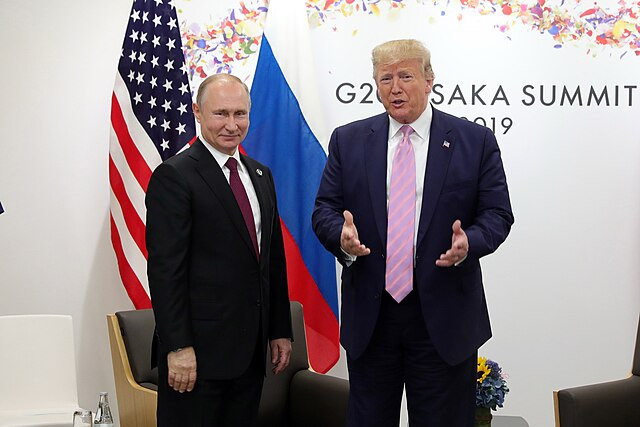President Donald Trump warned Wednesday that Russia would face "very severe consequences" if President Vladimir Putin refuses to agree to a ceasefire during their summit in Alaska on Friday. The warning marked a shift from Trump's earlier description of the meeting as a low-expectation "feel-out" session, setting a concrete goal that Putin has repeatedly rejected.
Speaking at the Kennedy Center shortly after a more than hour-long call with Ukrainian President Volodymyr Zelensky and European leaders, Trump said he wanted to secure a ceasefire and assess whether a full peace agreement is possible. "First, I'll find out where we are," Trump stated. "If the first [meeting] goes okay, we'll have a quick second one. I would like to do it almost immediately."
The call included French President Emmanuel Macron, German Chancellor Friedrich Merz, NATO Secretary General Mark Rutte, Italian Prime Minister Giorgia Meloni, and Polish President Karol Nawrocki. Sources familiar with the discussion said Macron took "very tough" positions, telling Trump "a meeting is a very big thing to give to Putin." Merz later said Trump "largely agreed" that Russia should not receive legal recognition of the territories it has occupied, while Zelensky told Trump that "Putin cannot be trusted."
Trump emphasized that he is "not from the region" and would not decide territorial issues, suggesting that land swaps might be needed as part of a settlement. "Trump said it's Vladimir and Volodymyr who have to discuss territories with each other, not him," one source noted.
Zelensky, appearing alongside Merz in Berlin after the call, urged "more pressure" on Russia and argued that Putin was bluffing about the impact of sanctions. European leaders signaled concern about what Trump might agree to with Putin, underscoring that Ukrainian and European interests must be upheld.
Administration officials described Trump's outlook as "optimistic" despite acknowledging the difficulty of the task. "We're optimistic. But we're not crazy. This is hard," one official said, adding that both sides appear fatigued by the conflict. Another said, "Everyone is exhausted, so this is where the art of the possible - the Art of the Deal - becomes possible."
Still, European officials remain skeptical of Putin's willingness to seek genuine peace. Trump endorsed the idea of a trilateral summit with Putin and Zelensky after Friday's meeting but cautioned, "There may be no second meeting because if I feel that it's not appropriate to have it... then we are not going to have a second meeting."
When asked if he believed he could persuade Putin to stop targeting civilians in Ukraine, Trump replied, "I guess the answer to that is probably no."






